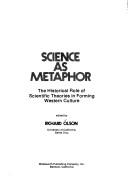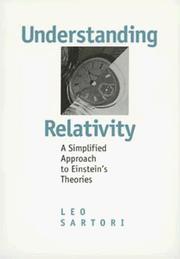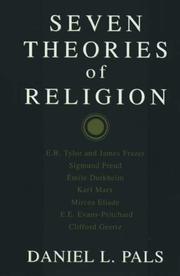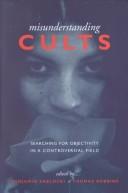| Listing 1 - 10 of 15 | << page >> |
Sort by
|

ISBN: 0534000398 Year: 1971 Publisher: Belmont, Calif.
Abstract | Keywords | Export | Availability | Bookmark
 Loading...
Loading...Choose an application
- Reference Manager
- EndNote
- RefWorks (Direct export to RefWorks)
History --- Philosophy of science --- Science --- -Religion and science --- -Natural science --- Science of science --- Sciences --- Christianity and science --- Geology --- Geology and religion --- Science and religion --- Philosophy --- Religious aspects --- Religion and science. --- History. --- Philosophy. --- -Philosophy --- Religion and science --- Normal science --- philosophy --- science --- religion --- history --- scientific theory --- Western culture

ISBN: 0520916247 0585055173 128235499X 9786612354991 9780520916241 9780585055176 9781282354999 9780520079861 0520079868 9780520200296 0520200292 0520079868 0520200292 6612354992 Year: 1996 Publisher: Berkeley, CA : University of California Press,
Abstract | Keywords | Export | Availability | Bookmark
 Loading...
Loading...Choose an application
- Reference Manager
- EndNote
- RefWorks (Direct export to RefWorks)
Nonspecialists with no prior knowledge of physics and only reasonable proficiency with algebra can now understand Einstein's special theory of relativity. Effectively diagrammed and with an emphasis on logical structure, Leo Sartori's rigorous but simple presentation will guide interested readers through concepts of relative time and relative space. Sartori covers general relativity and cosmology, but focuses on Einstein's theory. He tracks its history and implications. He explores illuminating paradoxes, including the famous twin paradox, the "pole-in-the-barn" paradox, and the Loedel diagram, which is an accessible, graphic approach to relativity. Students of the history and philosophy of science will welcome this concise introduction to the central concept of modern physics.
Relativity (Physics) --- Gravitation --- Nonrelativistic quantum mechanics --- Space and time --- #dd Sabbe Camiel cfx --- 530.12 --- 530.12 Relativity principle --- Relativity principle --- academic. --- algebra. --- cosmology. --- cosmos. --- einstein. --- graphics. --- historical. --- history. --- loedel diagram. --- logic. --- logical. --- modern physics. --- outer space. --- paradox. --- philosophy. --- physics. --- pole in the barn paradox. --- relativity. --- scholarly. --- science. --- scientific philosophy. --- scientific theory. --- scientific. --- theory of relativity. --- twin paradox. --- world history.

ISBN: 0195087240 0195087259 Year: 1996 Publisher: New York Oxford University Press, Inc.
Abstract | Keywords | Export | Availability | Bookmark
 Loading...
Loading...Choose an application
- Reference Manager
- EndNote
- RefWorks (Direct export to RefWorks)
Religion --- Study and teaching --- History --- Etude et enseignement --- Histoire --- 291 --- -Religion --- -Religion, Primitive --- Atheism --- God --- Irreligion --- Religions --- Theology --- Godsdienstwetenschap: vergelijkend --- -History --- -Study and teaching --- History. --- -Godsdienstwetenschap: vergelijkend --- -291 --- Religion, Primitive --- Study and teaching&delete& --- religion --- origine of religion --- individual emotional needs --- sociel demands in society --- economic injustice --- cultural patterns --- human reason --- scientific theory of religion --- classic theory --- E.B. Tylor --- James Frazer --- Freud --- Marx --- Emile Durkheim --- Mircea Eliade --- E.E. Evans-Pritchard --- Clifford Geertz

ISBN: 9786612028731 1282028731 1442677309 9781442677302 9780802043733 0802043739 0802081886 9780802081889 6612028734 9781282028739 1487598440 9781487598440 Year: 2001 Publisher: Toronto Buffalo University of Toronto Press
Abstract | Keywords | Export | Availability | Bookmark
 Loading...
Loading...Choose an application
- Reference Manager
- EndNote
- RefWorks (Direct export to RefWorks)
Unique in its breadth, this is the first study of new religious movements to address the main points of controversy within the field while attempting to find a middle ground between opposing camps of scholarship.
Cults. --- Alternative religious movements --- Cult --- Cultus --- Marginal religious movements --- New religions --- New religious movements --- NRMs (Religion) --- Religious movements, Alternative --- Religious movements, Marginal --- Religious movements, New --- Religions --- Sects --- Cults --- 298.9 --- Recente niet-christelijke of afgeleid-christelijke religies; New Age --- 298.9 Recente niet-christelijke of afgeleid-christelijke religies; New Age --- collaborationism --- research integrity --- the study of alternative religions --- the sociological study of cults --- scientific theory of brainwashing --- pseudo science --- conversion --- The Family --- Children of God --- Scientology --- Stephen Kent's 'Revival of the Brainwashing model' --- Lorne Dawson --- society --- totalist groups --- new religious movements --- religious violence in America
Book
ISBN: 069112471X Year: 2009 Publisher: Princeton, New Jersey ; Oxford : Princeton University Press,
Abstract | Keywords | Export | Availability | Bookmark
 Loading...
Loading...Choose an application
- Reference Manager
- EndNote
- RefWorks (Direct export to RefWorks)
Princeton Readings in American Politics offers an exciting and challenging new way to learn about American politics. It brings together political science that has stood the test of time and recent cutting-edge analyses to acquaint undergraduate and graduate students with the substantive, conceptual, and methodological foundations they need to make sense of American politics today.Princeton Readings in American Politics features writings by such eminent scholars as Larry M. Bartels, Robert Dahl, Martha Derthick, Howard Gillman, Jacob Hacker, Kay L. Schlozman, Deborah Stone, Marta Tienda, and Kent Weaver, among others. The book is organized in sections that cover the major American political institutions--the presidency, Congress, the courts--as well as core topics such as political parties, macroeconomic management, voting and elections, policymaking, public opinion, and federalism. Richard Valelly provides an insightful general introduction to political science as a vibrant form of inquiry, as well as a succinct, informative introduction to each reading.Rigorous yet accessible, Princeton Readings in American Politics can serve as a primary textbook or as a supplement to standard introductory texts.Offers an exciting new way to learn about American politics Features accessible scholarship by leading political scientists Covers all the major topics Serves as a primary textbook or supplementary reader for undergraduate and graduate students
United States --- Politics and government. --- Chicago police. --- Chief Justice. --- Federalist. --- Finality. --- Law enforcement. --- Minority Rights. --- Prohibition. --- Richard Nixon. --- Ritualistic. --- Roman Catholicism. --- Rule of Recognition. --- Russian Revolution. --- Symbolizing National Unity. --- United States Chamber of Commerce. --- administrative capacity. --- agricultural policies. --- amendment. --- antitrust laws. --- banning. --- barriers to entry. --- capabilities. --- constitutionalism. --- contemporary political science. --- conventions. --- deliberately. --- disproportionate impact. --- economic redistribution. --- gold-plating. --- government actions. --- government growth. --- human control. --- human intelligence. --- hypothesis. --- intentional cause. --- judicial power. --- knowledge. --- learning effects. --- long-term. --- movement. --- official language. --- organization. --- political hierarchy. --- political resistance. --- problems. --- prominent account. --- safety devices. --- scientific theory. --- transmission. --- unanimously. --- unemployment. --- violations.
Book
ISBN: 9780691152097 0691152098 0691169136 9780691169132 1400850134 9781400850136 9781306711678 1306711673 Year: 2014 Publisher: Princeton, NJ : Princeton University Press,
Abstract | Keywords | Export | Availability | Bookmark
 Loading...
Loading...Choose an application
- Reference Manager
- EndNote
- RefWorks (Direct export to RefWorks)
Complexity science-made possible by modern analytical and computational advances-is changing the way we think about social systems and social theory. Unfortunately, economists' policy models have not kept up and are stuck in either a market fundamentalist or government control narrative. While these standard narratives are useful in some cases, they are damaging in others, directing thinking away from creative, innovative policy solutions. Complexity and the Art of Public Policy outlines a new, more flexible policy narrative, which envisions society as a complex evolving system that is uncontrollable but can be influenced.David Colander and Roland Kupers describe how economists and society became locked into the current policy framework, and lay out fresh alternatives for framing policy questions. Offering original solutions to stubborn problems, the complexity narrative builds on broader philosophical traditions, such as those in the work of John Stuart Mill, to suggest initiatives that the authors call "activist laissez-faire" policies. Colander and Kupers develop innovative bottom-up solutions that, through new institutional structures such as for-benefit corporations, channel individuals' social instincts into solving societal problems, making profits a tool for change rather than a goal. They argue that a central role for government in this complexity framework is to foster an ecostructure within which diverse forms of social entrepreneurship can emerge and blossom.
Economic policy and planning (general) --- Economic policy --- Complexity (Philosophy) --- Evolutionary economics --- Policy sciences --- Economic policy. --- Evolutionary economics. --- Policy sciences. --- #SBIB:33H000 --- #SBIB:35H006 --- #SBIB:17H25 --- Policy-making --- Policymaking --- Public policy management --- Economics --- Philosophy --- Emergence (Philosophy) --- Economic nationalism --- Economic planning --- National planning --- State planning --- Planning --- National security --- Social policy --- Economie: algemene werken --- Bestuurswetenschappen: theorieën --- Sociale wijsbegeerte: economische orde en arbeid --- Social change --- Political philosophy. Social philosophy --- E-books --- Brian Arthur. --- I Pencil. --- Leonard Reed. --- Santa Fe Institute. --- Stephen Wolfram. --- activist laissez-faire policy. --- bottom-up solutions. --- complexity economics. --- complexity frame. --- complexity models. --- complexity policy. --- complexity science. --- complexity theory. --- complexity. --- computational tools. --- economic models. --- economic policy. --- economics. --- ecostructure. --- education. --- free market. --- game theory. --- government policy. --- government. --- laissez-faire. --- macroeconomics. --- market duality. --- microeconomics. --- neoclassical economics. --- norms policy. --- policy framework. --- policymakers. --- policymaking. --- scientific theory. --- social entrepreneurship. --- social policy. --- social systems. --- social theory. --- society.
Book
ISBN: 0691184054 9780691184050 Year: 2018 Publisher: Princeton, NJ : Princeton University Press,
Abstract | Keywords | Export | Availability | Bookmark
 Loading...
Loading...Choose an application
- Reference Manager
- EndNote
- RefWorks (Direct export to RefWorks)
How modern economics abandoned classical liberalism and lost its wayMilton Friedman once predicted that advances in scientific economics would resolve debates about whether raising the minimum wage is good policy. Decades later, Friedman's prediction has not come true. In Where Economics Went Wrong, David Colander and Craig Freedman argue that it never will. Why? Because economic policy, when done correctly, is an art and a craft. It is not, and cannot be, a science. The authors explain why classical liberal economists understood this essential difference, why modern economists abandoned it, and why now is the time for the profession to return to its classical liberal roots.Carefully distinguishing policy from science and theory, classical liberal economists emphasized values and context, treating economic policy analysis as a moral science where a dialogue of sensibilities and judgments allowed for the same scientific basis to arrive at a variety of policy recommendations. Using the University of Chicago-one of the last bastions of classical liberal economics-as a case study, Colander and Freedman examine how both the MIT and Chicago variants of modern economics eschewed classical liberalism in their attempt to make economic policy analysis a science. By examining the way in which the discipline managed to lose its bearings, the authors delve into such issues as the development of welfare economics in relation to economic science, alternative voices within the Chicago School, and exactly how Friedman got it wrong.Contending that the division between science and prescription needs to be restored, Where Economics Went Wrong makes the case for a more nuanced and self-aware policy analysis by economists.
Economic policy. --- Economic nationalism --- Economic planning --- National planning --- State planning --- Economics --- Planning --- National security --- Social policy --- Economic policy --- Liberalism --- Comparative economics --- Comparative economic systems --- Economics, Comparative --- Liberal egalitarianism --- Liberty --- Political science --- Social sciences --- E-books --- Comparative economics. --- Liberalism. --- BUSINESS & ECONOMICS / Economic History. --- Aaron Director. --- Alvin Roth. --- Amartya Sen. --- Ariel Rubinstein. --- Buchanan political economy. --- Chicago Economics Department. --- Chicago School of Economics. --- Chicago School. --- Chicago economics. --- Chicago tradition. --- Chicago. --- Classical Liberal attitude. --- Classical Liberal methodology. --- Classical Liberalism. --- Classical Liberals. --- Coasian institutionalist approach. --- Dani Rodrik. --- Edward Leamer. --- George Stigler. --- James Buchanan. --- James Laughlin. --- John Stuart Mill. --- Milton Friedman. --- Paul Romer. --- Ronald Coase. --- University of Chicago. --- Virginia School. --- argumentation. --- econometric testing. --- economic policy analysis. --- economic policy. --- economic science. --- economic theory. --- economics. --- economists. --- educated common sense. --- formal theory. --- liberal economists. --- liberalism. --- mainstream theory. --- minimum wage. --- modern economics. --- policy differences. --- policy economics. --- policy issue. --- policy issues. --- policy methodology. --- policy prescriptions. --- policy problems. --- policy. --- postwar era. --- science. --- scientific economics. --- scientific methods. --- scientific policy. --- scientific theory. --- theoretical problems. --- welfare economics.
Book
ISBN: 069123566X Year: 2022 Publisher: Princeton ; Oxford : Princeton University Press,
Abstract | Keywords | Export | Availability | Bookmark
 Loading...
Loading...Choose an application
- Reference Manager
- EndNote
- RefWorks (Direct export to RefWorks)
Quantum physicist, New York Times bestselling author, and BBC host Jim Al-Khalili reveals how 8 lessons from the core of science can help you get the most out of lifeToday’s world is unpredictable and full of contradictions, and navigating its complexities while trying to make the best decisions is far from easy. The Joy of Science presents 8 short lessons on how to unlock the clarity, empowerment, and joy of thinking and living a little more scientifically.In this brief guide to living a more rational life, acclaimed physicist Jim Al-Khalili invites readers to engage with the world as scientists have been trained to do. The scientific method has served humankind well in its quest to see things as they really are, and underpinning the scientific method are core principles that can help us all navigate modern life more confidently. Discussing the nature of truth and uncertainty, the role of doubt, the pros and cons of simplification, the value of guarding against bias, the importance of evidence-based thinking, and more, Al-Khalili shows how the powerful ideas at the heart of the scientific method are deeply relevant to the complicated times we live in and the difficult choices we make.Read this book and discover the joy of science. It will empower you to think more objectively, see through the fog of your own preexisting beliefs, and lead a more fulfilling life.
Science --- SCIENCE / Philosophy & Social Aspects. --- Normal science --- Philosophy of science --- Philosophy. --- Accuracy and precision. --- Anecdotal evidence. --- Appeal to emotion. --- Availability. --- Behavioural sciences. --- Billionaire. --- Body of knowledge. --- Certainty. --- Chemist. --- Cognitive dissonance. --- Confirmation bias. --- Conspiracy theory. --- Convenience. --- Cosmological constant. --- Cultural relativism. --- Discovery (observation). --- Echinus esculentus. --- Education. --- Efficacy. --- Empathy. --- Empirical evidence. --- Everyday life. --- Explanation. --- Fact. --- Fixation (histology). --- Humility. --- Hypothesis. --- IT Works. --- Ideology. --- Illusory superiority. --- Invention. --- Know thyself. --- Logical reasoning. --- Moral relativism. --- Natural science. --- Nature of Science. --- Objectivity (philosophy). --- Objectivity (science). --- Observation. --- Phenomenon. --- Philosophy of science. --- Physicist. --- Prediction. --- Prince Charming. --- Quantum mechanics. --- Rationality. --- Real image. --- Reality. --- Reason. --- Reproducibility. --- Result. --- Science. --- Scientific enterprise. --- Scientific evidence. --- Scientific literacy. --- Scientific method. --- Scientific realism. --- Scientific theory. --- Scientist. --- Sense of wonder. --- Special relativity. --- Sustainable living. --- Technology. --- The Better Angels of Our Nature. --- The Nature of Truth. --- Theoretical physics. --- Theory. --- Uncertainty. --- Understanding. --- Wishful thinking. --- World view.
Book
ISBN: 9780691240237 Year: 2021 Publisher: Princeton, NJ
Abstract | Keywords | Export | Availability | Bookmark
 Loading...
Loading...Choose an application
- Reference Manager
- EndNote
- RefWorks (Direct export to RefWorks)
Among the great ironies of quantum mechanics is not only that its conceptual foundations seem strange even to the physicists who use it, but that philosophers have largely ignored it. Here, Bernard d'Espagnat argues that quantum physics--by casting doubts on once hallowed concepts such as space, material objects, and causality-demands serious reconsideration of most of traditional philosophy. On Physics and Philosophy is an accessible, mathematics-free reflection on the philosophical meaning of the quantum revolution, by one of the world's leading authorities on the subject. D'Espagnat presents an objective account of the main guiding principles of contemporary physics-in particular, quantum mechanics-followed by a look at just what consequences these should imply for philosophical thinking. The author begins by describing recent discoveries in quantum physics such as nonseparability, and explicating the significance of contemporary developments such as decoherence. Then he proceeds to set various philosophical theories of knowledge--such as materialism, realism, Kantism, and neo-Kantism--against the conceptual problems quantum theory raises. His overall conclusion is that while the physical implications of quantum theory suggest that scientific knowledge will never truly describe mind-independent reality, the notion of such an ultimate reality--one we can never access directly or rationally and which he calls "veiled reality"--remains conceptually necessary nonetheless.
Physics --- Philosophy. --- Albert Einstein. --- Aristotelian physics. --- Atomic physics. --- Atomic theory. --- Atomism. --- Baruch Spinoza. --- Bell's theorem. --- Classical electromagnetism. --- Classical mechanics. --- Classical physics. --- Concept. --- Consciousness. --- Contemporary Physics. --- Explanation. --- Foundations of Physics. --- Hidden variable theory. --- Hypothesis. --- Interpretations of quantum mechanics. --- Materialism. --- Measurement in quantum mechanics. --- Measurement. --- Modern physics. --- Naturalism (philosophy). --- Objectivity (philosophy). --- Objectivity (science). --- Ontology. --- Phenomenon. --- Philosopher. --- Philosophical realism. --- Philosophical theory. --- Philosophy of mathematics. --- Philosophy of science. --- Physicist. --- Physics World. --- Prediction. --- Probability. --- Quantum cosmology. --- Quantum decoherence. --- Quantum electrodynamics. --- Quantum entanglement. --- Quantum field theory. --- Quantum gravity. --- Quantum logic. --- Quantum mechanics. --- Quantum superposition. --- Quantum system. --- Reality. --- Reason. --- Scalar (physics). --- Science. --- Scientific Data (journal). --- Scientific notation. --- Scientific realism. --- Scientific theory. --- Scientist. --- Solid-state physics. --- Special relativity. --- State of affairs (philosophy). --- Statistical ensemble (mathematical physics). --- The Evolution of Physics. --- The Philosopher. --- Theoretical physics. --- Theory. --- Thought. --- Wave function.

ISBN: 0691018596 1400850924 Year: 2014 Publisher: Princeton, NJ : Princeton University Press,
Abstract | Keywords | Export | Availability | Bookmark
 Loading...
Loading...Choose an application
- Reference Manager
- EndNote
- RefWorks (Direct export to RefWorks)
This third volume of Jung's Collected Works contains his renowned monograph "On the Psychology of Dementia Praecox" (1907), described by A. A. Brill as indispensable for every student of psychiatry--"the work which firmly established Jung as a pioneer and scientific contributor to psychiatry." Also included are nine other papers in psychiatry, the earliest being "The Content of the Psychoses," written in 1908, and the latest being two papers, written in 1956 and 1958, which embody Jung's conclusions after many years of experience in the psychotherapy of schizophrenia.
Psychology, Pathological. --- Psychoses. --- Schizophrenia. --- Absurdity. --- Affect (psychology). --- Alcoholism. --- Ambivalence. --- Analogy. --- Anxiety disorder. --- Anxiety. --- Apathy. --- Archetype. --- Assonance. --- Atrophy. --- Basal ganglia. --- Bibliography. --- Bipolar disorder. --- Catatonia. --- Causality. --- Concept. --- Consciousness. --- Convalescence. --- Criticism. --- Delusion. --- Dementia praecox. --- Dementia. --- Detriment (astrology). --- Disease. --- Disposition. --- Dissociation (psychology). --- Distraction. --- Epilepsy. --- Eugen Bleuler. --- Explanation. --- Extraversion and introversion. --- Feeble-minded. --- Feeling. --- General practitioner. --- Gerhard Adler. --- Grandiose delusions. --- Hallucination. --- Hypnosis. --- Hysteria. --- Imagery. --- Indication (medicine). --- Lesion. --- Libido. --- Medical diagnosis. --- Medical history. --- Medulla oblongata. --- Mental disorder. --- Michael Fordham. --- Neurosis. --- Observation. --- Overreaction. --- Paralysis. --- Paranoia. --- Paranoid schizophrenia. --- Parapsychology. --- Pathology. --- Perseveration. --- Personality. --- Pessimism. --- Phenomenon. --- Philosopher. --- Physician. --- Pierre Janet. --- Prognosis. --- Psyche (psychology). --- Psychiatric hospital. --- Psychiatrist. --- Psychiatry. --- Psychoanalysis. --- Psychologist. --- Psychology of the Unconscious. --- Psychology. --- Psychomotor agitation. --- Psychopathology. --- Psychosis. --- Psychotherapy. --- Puberty. --- Publication. --- Relapse. --- Result. --- Reticular formation. --- Schizophrenia. --- Scholasticism. --- Scientific theory. --- Self-criticism. --- Shyness. --- Sigmund Freud. --- Spinal cord. --- Stereotypy. --- Suggestion. --- Suicide. --- Symbols of Transformation. --- Symptom. --- Thalamus. --- The Collected Works of C. G. Jung. --- Theory. --- Thought. --- Volition (psychology). --- Writing.
| Listing 1 - 10 of 15 | << page >> |
Sort by
|

 Search
Search Feedback
Feedback About
About Help
Help News
News